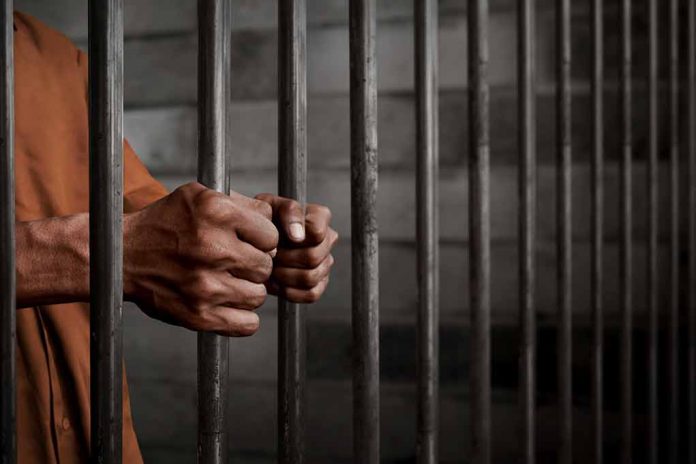
President Trump proposes sending violent American criminals to El Salvador, sparking a debate on legal and ethical implications.
Top Takeaways
- Trump suggests sending U.S. convicts to foreign prisons for a fee
- El Salvador’s President Bukele offers to house violent U.S. criminals
- Secretary of State Marco Rubio discusses the proposal with Bukele
- Legal uncertainties and ethical concerns surround the proposal
- El Salvador’s prison conditions raise human rights concerns
Trump’s Controversial Proposal
President Donald Trump has put forward a contentious proposal to send American convicts, particularly violent repeat offenders, to foreign prisons for a fee. This unexpected suggestion has ignited a fierce debate about the legal and ethical implications of such a move. Trump claims that several countries have expressed willingness to take U.S. criminals and act as their jailers, with El Salvador emerging as a potential partner in this unconventional approach to criminal justice.
The proposal gained traction when El Salvadoran President Nayib Bukele offered to house violent U.S. convicts in El Salvador’s jails. This offer comes despite the U.S. State Department’s description of these facilities as harsh and dangerous. Trump acknowledged uncertainty about the legality of transferring American convicts to other countries but expressed keen interest in pursuing this option, viewing it as a potential solution to address severe criminal acts in the United States.
BREAKING: U.S. Secretary of State Marco Rubio announces that El Salvador’s president has agreed to accept deportees from the U.S., regardless of nationality, as well as violent criminals currently imprisoned in America. pic.twitter.com/sPIbBAt6XW
— Breaking911 (@Breaking911) February 4, 2025
Diplomatic Discussions and Expansion of the Proposal
Secretary of State Marco Rubio has been at the forefront of discussions with President Bukele regarding this proposal. According to reports, Bukele has agreed to accept deported criminals from the U.S., including those with U.S. citizenship and legal residence. This agreement extends beyond just American citizens, as Bukele’s offer includes housing dangerous criminals of any nationality deported by the U.S., such as members of violent gangs like MS-13.
The proposal has raised eyebrows among legal experts and human rights advocates. El Salvador’s prison conditions have been criticized for overcrowding and inadequate facilities, posing significant health and safety risks to inmates. These concerns add another layer of complexity to the already controversial proposal.
Financial Considerations and Potential Benefits
President Bukele has suggested that the U.S. could outsource part of its prison system to El Salvador for a fee. This arrangement, according to Bukele, would be financially beneficial for both nations. The cost would be relatively low for the U.S. while providing significant financial resources for El Salvador. Trump views this as a potential win-win situation, addressing America’s criminal justice challenges while providing economic support to a willing partner nation.
However, critics argue that such a move could violate international law and human rights standards. The proposal raises questions about the treatment of prisoners, their rights to due process, and the potential for diplomatic complications. Legal experts point out that transferring U.S. citizens to foreign prisons could face significant constitutional challenges and may require new legislation or international agreements.
Implications and Future Considerations
As this proposal continues to generate discussion, it underscores the complex interplay between domestic criminal justice policies and international relations. The idea of outsourcing incarceration to foreign countries represents a significant departure from traditional approaches to criminal justice and raises important questions about sovereignty, human rights, and the responsibilities of the state towards its citizens, even those convicted of crimes.
While the proposal aims to address serious criminal issues in the U.S., it also opens up a Pandora’s box of legal, ethical, and diplomatic challenges. As the debate unfolds, it will be crucial for policymakers, legal experts, and the public to carefully consider the long-term implications of such a radical shift in criminal justice policy. The coming months will likely see intense scrutiny of this proposal, as its potential implementation could have far-reaching consequences for both the United States and its international partners.






















